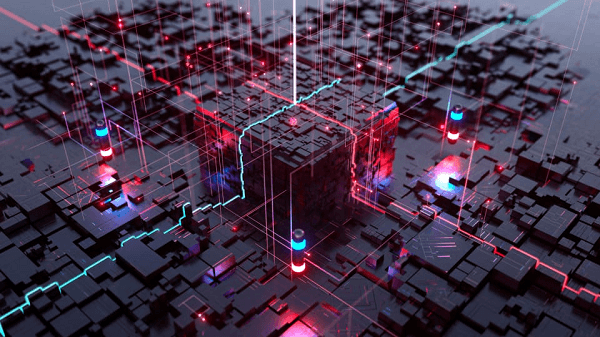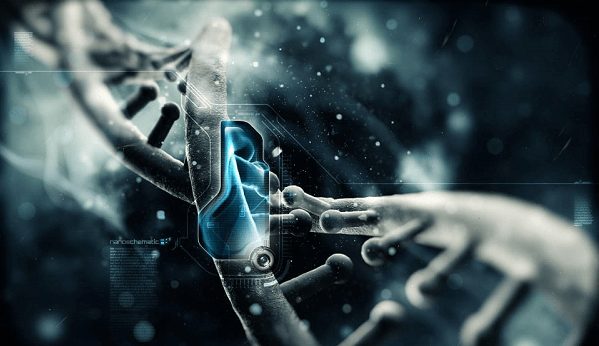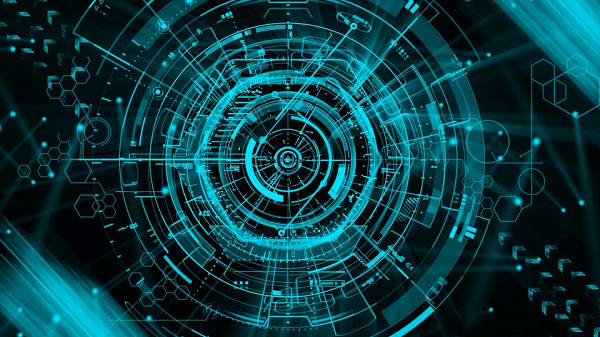Technology EssayTechnology results from collecting knowledge and applying techniques, methods, and processes used in manufacturing products and scientific studies. Technology is derived from the Greek word, 'techne,' which means "science of craft," and 'logia,' which means "art, skill or cunning of hand." After 1930, "technology" was the study of industrial work and the industrial arts. 
Over the last two decades, the concept of "technology" has significantly shifted. This phrase was not commonly used in English before the 20th century. It once meant studying the artists or making a technical training reference, like the Massachusetts Institute of Technology (chartered in 1861). With or without detailed knowledge of the functions engaged in it, technology has been implemented into essentially every machine's functioning for the intended goal of an organization. The systems that make up society's technology is called operating a system; one must initially get an input, alter that entered data through a process, and then generate an outcome that serves the system's desired purpose. Technology is also used in biology. Genetics is being explored, with humans understanding genetic engineering to a determined degree. However, gene editing is extensively divisive and often involves some grade of eugenics. Some have already wondered about the future of human engineering, including 'superhumans,' humans who are genetically engineered to become faster, more robust, and more survivable than the current humans. Some people think that genetic engineering will be used to make humans more resistant or completely immune to some diseases. Some scientists have suggested that 'cloning,' which is a process of creating an exact copy of a human, may be through genetic engineering. Some believe that humans will discover nanobot technology within the next ten years, while others believe we are centuries away from its invention. Futurists believe nanobot technology will help humans 'manipulate matter at the molecular and atomic scale.' This discovery could cover the way for many scientific and medical developments, such as curing new diseases or discovering new, more efficient technology. It's even believed that nanobots could be injected or otherwise inserted inside the human body, replacing certain parts, keeping humans healthy for a fabulously long time, or combating organ failure to a degree. Types of TechnologyThis is an era of technology. Every day new technology is emerging, revolutionizing the world and transforming the way of life. Some major types of technology that have emerged and are changing the world are Quantum Computing, Robotics, Artificial Intelligence, the Internet of Things, Blockchain Technology, Automation, Space Technology, Virtual Reality, and Nanotechnology. However more types of technology exist, but these are the most trending:
Benefits of TechnologyThe following are a few advantages of technology in many fields: Information and Communication Information and Communication have been deeply impacted by technology. It has revolutionized the field and opened new contours. Now, thousands of mediums are available to communicate and share information. Information and Communication among people are being done at the speed of light. Two decades ago, the world did not hear of virtual calls, instant messaging, and the Internet. It has virtually erased the geographical boundaries that existed earlier. 
2. Education Technology is being leveraged to learn, upgrade, and update new skills. It is bringing positive transformation in education sectors through the launch of such as e-libraries, e-classrooms, and e-learning platforms. It is making education personalized, inclusive, and accessible. Technological advancement has given birth to several Ed-Tech giants such as Byjus, Unacademy, Study IQ, etc. 3. Science & Medicine Science, Engineering, and Medicine sectors have seen unprecedented growth, advanced research and development, and innovation due to technology adoption. It has made the scientific and pharmaceutical community dwell on those aspects of science that were humanely impossible. It is fuelling progress and making life and experiments easier. The pharmaceutical sector has deeply benefitted from the technology adoption and making great strides in developing new, practical, and precious medicine and improving the healthcare of humans. 4. Industries A diverse variety of small and large-scale businesses are expanding due to technology. They can create and yield goods in much less time while still maintaining high quality. The people who can create the output within the specified timeframe are often under less obligation. 5. New Discoveries With the innovations of the latest tools and technology, new ideas are revealed daily if you look carefully. For example, there would have been no more advancements in other electronic components and equipment if electricity hadn't been developed. 6. Increased Productivity Production capacity worldwide has risen because of modern technologies and equipment advancements. Any sector of the economy and every other area worldwide has benefited enormously from advanced technologies. 7. Secured Environment A more secure environment for people has been created due to efficiency innovations. Banking and financial planning procedures have increased in legitimacy and security. In the current world, we might avoid the risk of paying in cash by sharing Communication with a plastic or credit card. Another fantastic example is the advancement of webcams, CCTV, or surveillance cameras, which have improved international integration, privacy, and accessibility to visual data. 8. Global Knowledge Access The World Wide Web, or www, has improved interconnection by sharing systematic from worldwide, accessible to the public. The 21st century has been of science and technology. You may learn about the Internet from teachers or training organizers worldwide or read an e-book in the luxury of your bed that has been published anywhere in the world. 9. Time Saver Modern technology is helping us to save time and help to invest time. Now, tasks that used to take hours or even days to execute may be accomplished in minutes or seconds. A few excellent examples of how technology has benefited our lives are: using email rather than a letter through the mail, manufacturing processes, transportation, finance, robotics, etc. Further, no one has to stand in line anymore to pay their electricity bills or for banking services. 10. Cost-Efficient The critical feature of sustained technological advancement is that it has decreased the expense of almost every type of good or service by either enhancing production or by providing services that are significantly more easily accessible and simple to use. The advancement of computers and artificial intelligence is mainly responsible for this. 11. Entertainment and Data Storage Everything that we see on television these days, including documentaries, cartoons, interviews, and special effects, is a result of advanced technology being developed worldwide. Now, a button may save vital data on a storage medium or a Dropbox. 12. Encourages Creativity Cooperation and Communication automatically lead to a tendency toward innovation. Technology encourages Creativity by enabling citizens with a platform for their concepts. Simple examples include the use of a smartboard during a brainstorming process or developing a mood board for a client using Pinterest. Another option is to make it easier for groups to find a productive location where they can easily exchange ideas. 13. Enhances Comfort Strangely, technology promotes Comfort. Noticeably, technology is enabling Comfort. Imagine a smart device that automatically adjusts to the temperature of the ideal working environment or an activity detector that determines a universe's design especially light sources. In their own distinct ways, these technologies encourage Comfort, which enhances concentration, mood, and output. Disadvantages of Technology1. Data Security With the help of digital technology, massive volumes of information can be accumulated and stored. Private information regarding people or organizations could be included here. It could be extremely challenging to protect this information. Various private information pieces may end up in the hands of cybercriminals, terrorists, opponents, foreign terrorists, or other evil institutions with just one hack. 
2. Crime and Terrorism The global scope, enormous size, and relative privacy that users may encounter provide the Internet with the perfect platform for evil forces to operate. Case studies of this include paedophiles using discussion forums and other positions to groom members of the public and export images, clips, and other data; terrorists using the Internet to advertise themselves and promote everyone else; drug pushers using the dark web to exchange information; and authoritarian governments trying to persuade or help influence election campaigns in democratic countries. 3. Complexity The equipment and technologies we use on a regular basis operate in a way that may be hard to recognize. Today, repairing an automobile requires the services of technology; it is no longer just technical. Interacting with a device's various contexts might be challenging. Small errors in a laptop's performance can cost money and energy. 4. Privacy Concerns In the digital age, maintaining individual privacy has become significantly difficult due to the risk of having your private details hacked or exploited. In contrast, anyone may use their smartphone to capture images and videos, which they'll then upload online. 5. Social Disconnect People are increasingly deliberately choosing to interact socially and communicate through smartphones over in-person interactions. This can rapidly result in feelings of exclusion and lack of connection. Since people have evolved for thousands of years to have an actual connection, removing that contact has a range of adverse effects on them that we are only now starting to understand. According to surveys, many people are experiencing depression and other kinds of mental disorders as they don't communicate with other individuals in actual situations. 6. Addiction Addiction is a problem with social media, electronic games, chatting, and dating platforms. In order to allow you to acquire the latest edition, games demand customers have to play. Websites desire that you engage with them so they can commercialize through marketing. Users eventually waste a tremendous amount of their time and money for such little return. 7. Degradation of Memory We use a wide range of tools and software, including spelling and grammatical analyzers, so typing even basic words may be challenging without an editor. These tools make us much more productive, but we should not depend on them as heavily. However, it also limits our ability to write and study. Our memory function changes abnormally as a consequence of contemporary technology and its accessories. Many devices, like timers and task organizers, are designed to assist us in keeping track of everything. Social media profiles also serve as an indicator when an acquaintance comments, likes, tags, or celebrates a birthday. 8. Distractions and Accidents According to the research, more individuals have deceased in a specific year from selfies than shark attacks. Numerous accidents occur with smartphones each year. Of course, that would seem weird, but it's the truth. One might easily become distracted by their smartphones and end up being struck by a car or falling off a cliff. Individuals expose themselves and the people around them at risk if they employ electronics while driving. 9. Dependency on Technology The civilization of humanity has incorporated advanced technology on an essential level. It is now extremely difficult to think of a business that would not leverage the advancements of modern technology. Frequently Ask Questions on Technology1. What does the term "technology" mean? Technology is the result of information accumulation, the application of methodologies, techniques, production technologies, and scientific research. 2. From where did the term "technology" originate? The term "technology" originated from the Greek word "technologia," which was first used in English in 1615. 3. What six categories of technology are there? The primary technology categories are industrial and commercial innovations, automation and robotics; medical advances; telecommunication technologies; and digital components. 4. What role does technology play? In essence, technology is harnessing equipment, technologies, and methods that help us solve issues and, in some ways, improve and simplify our lives. 5. What does technology look like today? Smartwatches and smartphones are examples of multipurpose gadgets made possible by modern technology. 6. What purpose does technology serve primarily? The technology uses the information in a specific, repeatable manner to achieve valuable aims. 7. How has technology affected the way we live? Increased convenience, quicker information availability, and online activities are just a few examples of how technology has altered our lives and shrunk the planet. 8. What are the benefits of technology to society? Technology has an impact on how people interact, educate, and think. It benefits society and consequences how individuals relate to one another regularly. 9. What role does technology play in our lives? Technology's improvements to our lives include time savings, quick connection and engagement, a higher standard of living, simple information exchange, and security. 10. What makes technology crucial for students? It makes it possible for distance learning, online learning, and accessibility to the most recent information. Technology allows for more research into topics that are more difficult to learn. 11. Which electronic technologies do we utilize daily? Smartphones, laptops, household appliances, vehicles, electric toothbrushes, and coffee makers are a few examples of daily technology. 12. Why is technology so crucial in the classroom? Modern instructors can more easily incorporate new methods and technologies into their classrooms because of technology. Teachers may enhance and make their classrooms more learner-centered. 13. What was the initial technological advancement? The stone tools were created around two million years ago, making them the earliest known technical innovation. 14. What part did technology play in the past? Technology has traditionally enhanced transportation and logistics, which has enhanced international trade, commerce, and intercultural communication. 15. What are the fundamental characteristics of technology? Information technology's four main components are information assurance, data and system administration, computer technical assistance, and corporate software development. 16. What positive effects has technology had on the economy's secondary sectors? As a result of globalization, technology has improved industry and employment opportunities, enhanced awareness and expertise, and enhanced global connectivity. 17. Is it possible to live without technology? We agree that it is physically feasible to live without technology. 18. What does technological research imply? The creation, design, advancement, and development of novel products, pieces of machinery, and other technological innovations are referred to as technology research and development. 19. What is a developed technology? Modern tools and procedures are referred to as "developed technology." 20. What constitutes the technology's underlying principles? Many different technologies are being developed based on artificial intelligence (AI) and machine learning. 21. What would occur to us if there was no technology? Humanity would not have developed as much without technology; without it, daily existence would be insufficient. 22. What would civilization lose first in a world without technology? First, there would be a loss of connection, as many individuals increasingly dependent on social media, text messaging, and phone conversations to connect. 23. How would we communicate if we didn't have technology? Without technology, people may interact in various ways, including face-to-face interactions, sign language, Morse code, smoke signals, body language, and telepathy. 24. How significant are technology and the internet to modern society? Life is more accessible due to the internet. People may work remotely and interact easily. We can purchase any item online only due to the technology. Being able to get information is also made simple by the abundance of websites available online. 25. What does the term "IT technology" mean? Information technology is the management and transmission of data utilizing speech, information, and media. It includes hardware, software, services, and infrastructure networks. 26. What does technology eventually achieve? Our culture has become so dependent on technology that they are oblivious to the possibility that one day it could break down, and they will be unable to function without it. We've come to rely on technology to simplify our lives. ConclusionUndoubtedly, technology has permanently altered our environment in both positive and negative ways. An excellent, intelligent, connected, and free civilization has emerged. It has greatly facilitated and enhanced our way of life. Since most nations practice democracy and everyone has the right to autonomy and equality, everyone can access data and information. Conversely, technology has negatively contributed to climate change and made us depend on it. Automation and Artificial technologies now jeopardize millions of professions. Cybercrimes, nuclear weapons, and contamination are all highly deadly. Following a comprehensive review of the key information about the benefits and limitations of technology, the benefits of technology seem to outweigh its drawbacks. Therefore, technology can improve life on the planet if utilized wisely.
Next TopicCorruption Essay
|
 For Videos Join Our Youtube Channel: Join Now
For Videos Join Our Youtube Channel: Join Now
Feedback
- Send your Feedback to [email protected]
Help Others, Please Share










